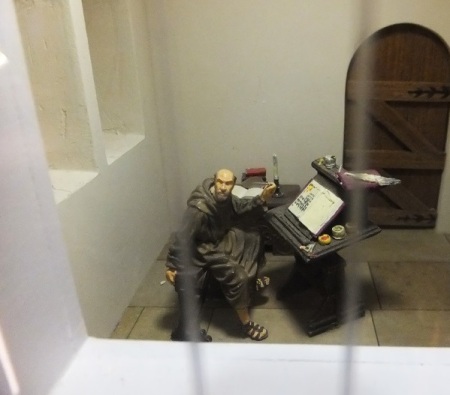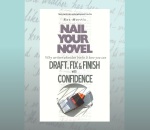 You’d think a writer would have the best excuse to read all the time – an unrestricted diet of anything and everything. But I find my relationship with books is somewhat complicated.
You’d think a writer would have the best excuse to read all the time – an unrestricted diet of anything and everything. But I find my relationship with books is somewhat complicated.
Like everyone, I have a stack of titles I’m eager to read – and never get to them unless I declare a special read-what-I-like holiday. Otherwise, my reading is on a permanent specialised regime.
A book in progress can be very fussy about what it’s fed, like an athlete.
I’ve identified that this regime has several phases.
Research – complicated but not really
I love factual research. Perhaps it’s a hangover from my ghostwriting days. Research was essential to the job, but also innately rewarding. Exciting ideas always came from these new territories of experience. Research was also darn good discipline because my editors were fearsome. If you know you’ll have to defend your plot decisions, you’re careful to check your facts. And you can never do enough swotting, so no time for ‘fun’ reading.
Don’t ask me about any of those subjects now, BTW. I could no more recall that detailed knowledge than I could now pass chemistry A level, though I once did that too.
Fiction for research – getting more complicated
Fiction is also research. In Nail Your Novel I talk about getting inspiration from fiction as a conversation with what other writers have done, perhaps to be more like them, or more unlike them. But here, danger lies. A satisfying novel can be disruptive when your own, by comparison, is primeval soup.
Disruption is one of the dangers of reading. When you’re a writer, you rarely enjoy a book for its own merits.
Interlude, where I don my editor hat
Now don’t for a moment think I’m warning you off reading. I see too many manuscripts written with little feel for the way prose works – problems the writer could solve in a thrice if they read books regularly. To write prose, you must love reading it.
This is not complicated.
 Reading while editing – really quite complicated now
Reading while editing – really quite complicated now
With my current novel Ever Rest, the plot, characters and themes are secure. It’s also secure in a bigger sense; I know what the book is. I’m eager to read fresh things and I’m eyeing that wishlist. But I’m now editing for nuance and I find I’m even more wary of disruption. I don’t know how another novel might rearrange my thinking, and right now that isn’t helpful.
I seem to be safe with books of criticism. I’ve been reading Faulks on Fiction by Sebastian Faulks. Great stories discussed but not experienced; behind a safety curtain.
I also seem to be safe if I reread novels I enjoyed a while ago. I get caught up, but I have a degree of immunity to their deepest surprises. I have already been changed by them and won’t be changed again.
Isn’t that a terrible way to use books? Perhaps to stop enjoying reading, you should be a writer.
Narrative non-fiction is working for me too. I loved Skyfaring: A Journey With a Pilot by Mark Vanhoenacker. It filled the sails but did not ruffle the book I was writing. The same with Do No Harm by brain surgeon Henry Marsh, which I’m currently reading.
It’s as if I’m reading to avoid inspiration, creating a controlled environment while my book does what it must.
Isn’t that crazy? Or do you do that too?
 PS You can find Nail Your Novel here
PS You can find Nail Your Novel here
 PPS I had a nice surprise this month when I discovered Not Quite Lost is a semifinalist in the Kindle Book Awards…… More in my newsletter here
PPS I had a nice surprise this month when I discovered Not Quite Lost is a semifinalist in the Kindle Book Awards…… More in my newsletter here
Meanwhile, tell me: What do you read while you write? Do you have strange rules?
